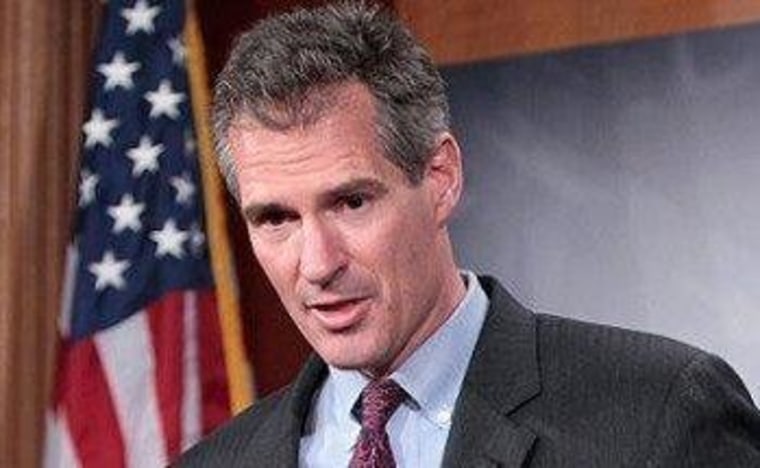In Massachusetts' closely-watched U.S. Senate race, incumbent Sen. Scott Brown (R) frequently boasts that he was "the tie-breaking vote on Wall Street reform." There are a few problems with the claim, including the fact that when a bill passes 59 to 39, no one cast the "tie-breaking vote."
But the point of the claim is that Brown wants voters to perceive him as someone who's willing to challenge the financial industry, and who won't do Wall Street's bidding. What the campaign claims don't include, however, is the fine print.
Senator Scott Brown has trumpeted his role in casting the deciding vote in favor of the 2010 Wall Street overhaul, but records show that after he voted for the law, he worked to shield banks and other financial institutions from some of its tough provisions.E-mails between Brown's legislative director and US Treasury Department officials show that Brown advocated for a loose interpretation of the law so that banks could more easily engage in high-risk investments.While the law, known as Dodd-Frank, sets broad parameters for how the financial industry must behave, the interpretation of the law, and the rules that follow, will govern Wall Street's daily business.
Brown, who has benefited from the remarkable generosity of Wall Street donors, took a particular interest in the Volcker rule, which the Massachusetts Republican weakened in the Senate before the vote, and then urged the Treasury Department to loosely enforce after the reform package became law, urging regulators to interpret the rule "broadly and to offer banks some leeway to invest in hedge funds and private equity funds."
Simon Johnson, a former chief economist at the International Monetary Fund and now a professor at MIT, told the Boston Globe the positions outlined in Brown's e-mails amount to a "significant loosening of the regulations and absolutely serving the interests of people who do not want to have meaningful reform.'' Johnson added, "This is a treatise on how to gut the thing."
Pat Garofalo recently added, "According to the Center for Responsive Politics, employees from the securities and investment industries have given more money to Brown than those of any other industry. Goldman Sachs and JP Morgan Chase, which just lost billions of dollars on the sort of trading that the Volcker Rule was originally meant to curtail, are amongst his top ten donors."
